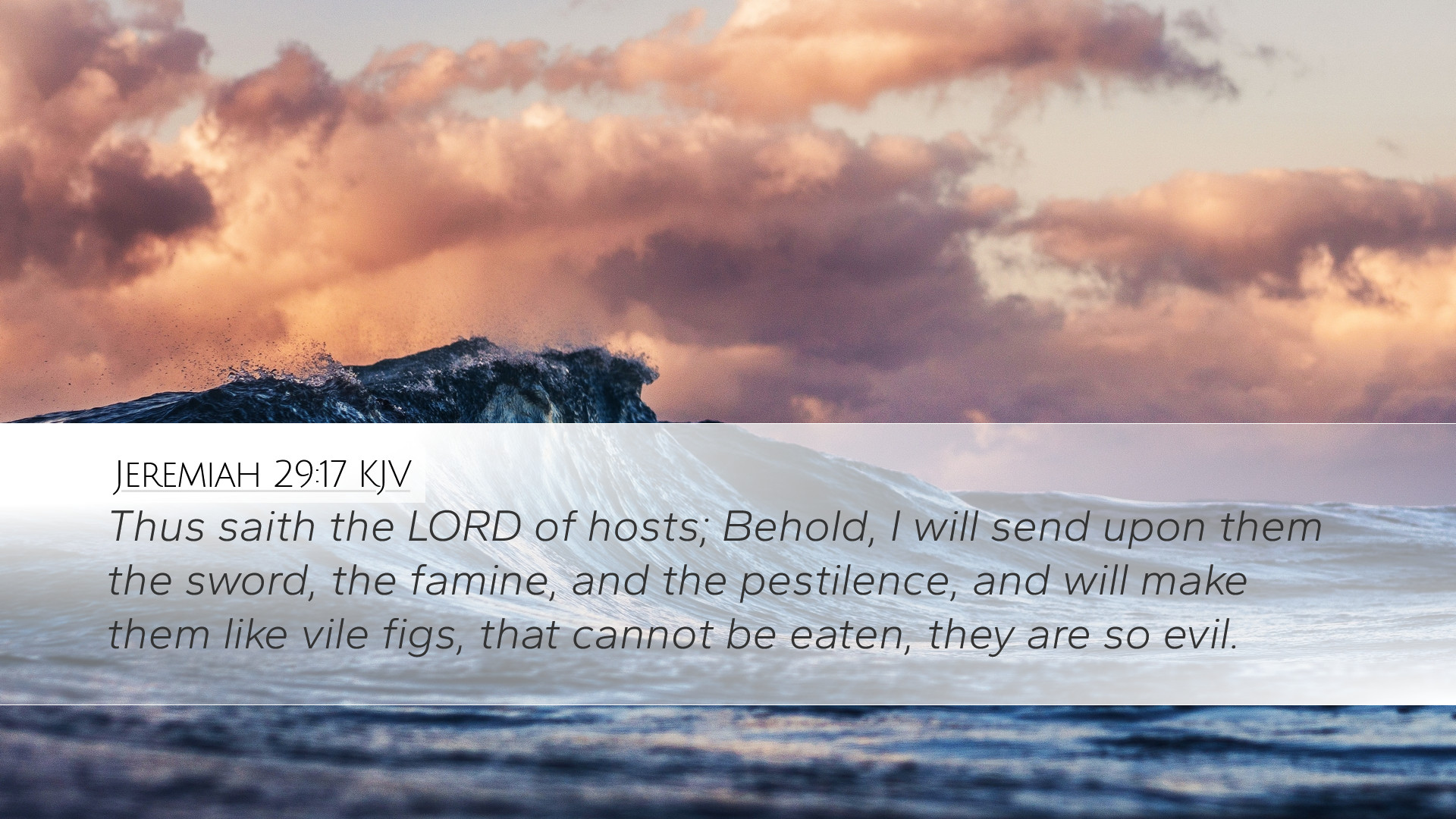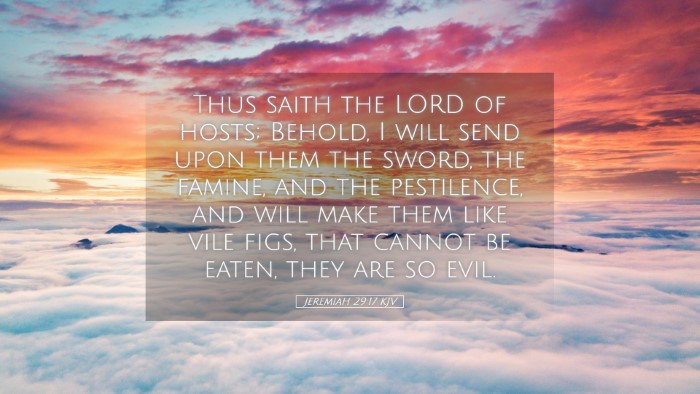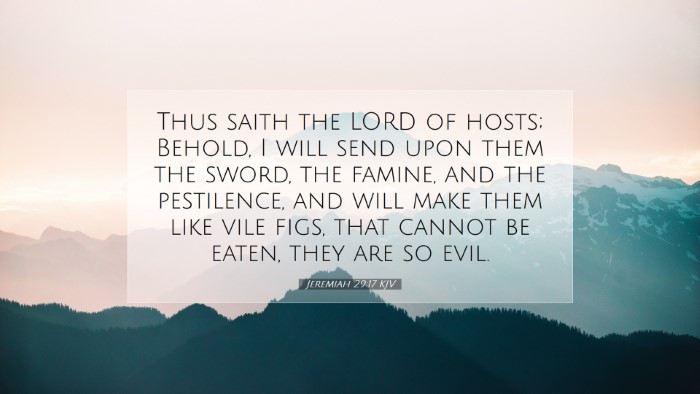Commentary on Jeremiah 29:17
Verse Text: "Thus saith the LORD of hosts; Behold, I will send upon them the sword, the famine, and the pestilence, and will make them like vile figs, that cannot be eaten, they are so evil."
Introduction
Jeremiah 29:17 marks a significant moment in the book of Jeremiah, reflecting God's judgment upon those who have turned away from Him. Within this verse, the prophet articulates a divine message that carries both weighty implications for the audience of his time and timeless lessons for readers today. It serves as both a warning and a revelation of God's righteous displeasure towards unfaithfulness.
Contextual Analysis
The broader context of Jeremiah 29 is vital for understanding this verse. The Israelites were in exile in Babylon, grappling with their identity and faith in a foreign land. They clung to the hope of returning home, but amidst this hope, God instructs them through Jeremiah about the consequences of continued disobedience. The mention of "the sword, the famine, and the pestilence" emphasizes the severity of the judgments they would face if they did not repent.
Theological Insights
- Divine Sovereignty: This verse reflects God's sovereign authority over nations and individuals. The phrase “sword, famine, and pestilence” signifies the comprehensive nature of His judgment, illustrating how God can employ various means to achieve His purposes.
- Human Responsibility: The correlation between Israel's actions and God's response delineates the importance of human responsibility. God’s plans for His people come with expectations; their failure to abide by covenantal obligations results in grave consequences.
- Judgment and Hope: While the verse embodies a stark warning, it concurrently conveys a message of redemption. God’s intention is not merely punitive; judgment is always aimed at restoring relationships and calling His people back to faithfulness.
Commentaries Combined Insights
Matthew Henry's Commentary
Henry perceives the imagery of "vile figs" as a powerful metaphor representing the disobedient people. He articulates that just as figs are deemed undesirable when rotten, so are individuals who have turned away from God's commandments. This comparison implies not just a current state of ruin but also a reflection on the fruitfulness that is lost due to sin.
Albert Barnes' Notes
Barnes provides an interpretation that stresses the inevitability of divine judgment when sin is unabated. He points out that the instruments of judgment—sword, famine, and pestilence—are not merely physical sufferings but also represent spiritual desolation. He underscores that these judgments have a purifying effect, meant to provoke spiritual introspection and restoration among God’s people.
Adam Clarke's Commentary
Clarke expands upon the implications of God's declaration with historical context. He emphasizes that the judgments pronounced were not only fulfilled during the Babylonian captivity but also serve as admonitions for all generations. His insights evoke a call to recognize the perennial nature of divine justice, urging believers to be vigilant against the allure of sin.
Applications for Today
The sobering message of Jeremiah 29:17 extends beyond its immediate historical context. For pastors, students, theologians, and scholars today, there are several critical applications to glean:
- Call to Repentance: The verse serves as an urgent reminder of the necessity for ongoing repentance and realignment with God's will. It is crucial for individuals and communities to reflect on their spiritual conditions regularly.
- Courage in Exile: Much like the Israelites in Babylon, Christians today may find themselves in unfriendly or hostile environments. This verse invites believers to maintain faithfulness and integrity despite external pressures.
- Understand God’s Justice: Studying this text helps in understanding the balance of God's justice and mercy. It encourages a holistic view of God who is loving and just, allowing believers to appreciate the gravity of His actions while also trusting in His redemptive plans.
Conclusion
Jeremiah 29:17 is a pivotal verse that encapsulates a profound theological statement on divine judgment and its implications for human conduct. The combined insights from Matthew Henry, Albert Barnes, and Adam Clarke offer a comprehensive understanding that is crucial for faithful interpretation and teaching. As we meditate on this verse, may we open our hearts to the lessons of judgment, grace, and the urgent call to remain devoted to our God.


